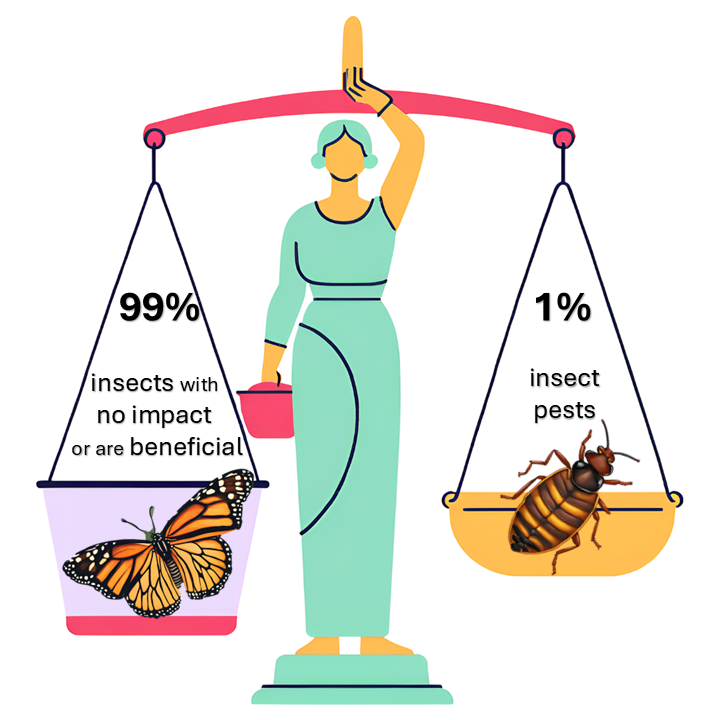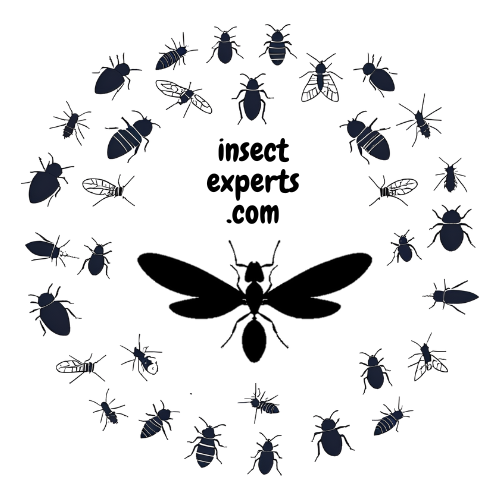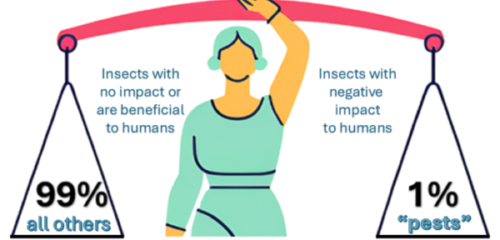Insects and Pests
“Insects” and “pests” have become almost synonymous in the modern world. Thus, when it comes to these tiny creatures, many people become squeamish and automatically associate ominous images of “pest”, “dirty”, and “infection”. What follows these negative images are thoughts of “pest control”, “removal”, “exterminator”, “killer”, or words to essentially just get rid of them.
Only 1% of Insects are Pests

But did you know that out of the estimated 1 million insect species in the world, only around 10,000 are actually considered economically important pests? The vast majority of insects pose no threat whatsoever to human interests. So why does the “pest” stigma persist, and what can we do to change our perceptions?
In this blog post,
- we’ll explore the origins of the word “pest”,
- examine the reasons behind our instinctive fear and disgust of insects, and
- make the case for appreciating the vital ecological roles that most insect species play.
Whether you’re dealing with a pest control issue or simply want to better understand the insect world, this post will provide a fresh perspective on why insects often get an undeserved bad rap.
The Origins of the Word “Pest”
When you hear the word “pest”, what’s the first thing that comes to mind? For many people, it’s probably some kind of creepy-crawly insect – a cockroach, a mosquito, a caterpillar munching on your vegetables. The term “pest” has become so closely linked with insects in the public consciousness, it’s easy to forget that the origins of this word was not directly attributed to bugs per se.
In fact, the word “pest” originates from the Latin word “pestis”, meaning “plague” or “contagion.” It was originally used to describe any kind of disease, infection, or infestation that caused widespread harm or disruption. Although it be argued that insects do play key roles in the plague and certain other diseases.
Over time, the meaning narrowed down to refer specifically to organisms that were considered undesirable or destructive to human interests.
Pest (noun) by Dictionary.com
1. an annoying or troublesome person, animal, or thing; nuisance. Synonyms: annoyance
2. an insect or other small animal that harms or destroys garden plants, trees, etc.
3. a deadly epidemic disease, especially a plague; pestilence. Synonyms: epidemic, scourge, pandemic
Insects and the “Pest” Label
So how did insects end up bearing the brunt of this “pest” label? It likely has to do with the fact that certain insect species are notorious to cause significant economic harm. This includes those that can cause agricultural damage, transmit dangerous diseases, or invade our homes and businesses. Crop-eating caterpillars, disease-carrying mosquitoes, and termites that devour wooden structures – these types of insects definitely deserve the “pest” classification.
But here’s the thing: out of the estimated 1 million described insect species in the world, only about 10,000 are considered economically important pests. That’s less than 1% of all insects! The other 99% are simply going about their business, playing vital roles in ecosystems as pollinators, decomposers, natural pest controllers, and more.
Why Do Humans Hate Insects?
Yet, because of a few bad apples, the entire insect world has become unfairly synonymous with the term “pest.” This deep-seated human aversion to insects can be attributed to several factors:
Evolutionary Disgust Response: Insects were often carriers of disease or sources of physical harm to our ancestors, so we developed a natural instinctive disgust and fear response to these creatures. This evolved response has become deeply ingrained in the human psyche.
Urbanization and Cleanliness: As humans transitioned from rural to urban living, we became increasingly disconnected from the natural world and developed a heightened sensitivity to anything perceived as “unclean” or “uncivilized” – including insects. Read about the urbanization-disgust hypothesis here.
Lack of Understanding: Many people simply don’t understand the vital ecological roles that most insects play. Without this knowledge, it’s easy to default to the “pest” label and see all bugs as a nuisance to be eliminated.
Cultural and Social Conditioning: Our disgust and fear of insects is also heavily influenced by cultural and social factors. Certain insects are viewed as “dirty” or “dangerous” in ways that become ingrained in our collective consciousness.
Appreciating the Insect World
So the next time you encounter an insect, try to resist that knee-jerk “pest” reaction. Take a moment to appreciate the incredible biodiversity of the insect world. Remember that these amazing animals are just trying to survive and thrive, like any other living creature. After all, we couldn’t survive without them!
Note: Read disclosures about our Content Creation Process here.


Comment